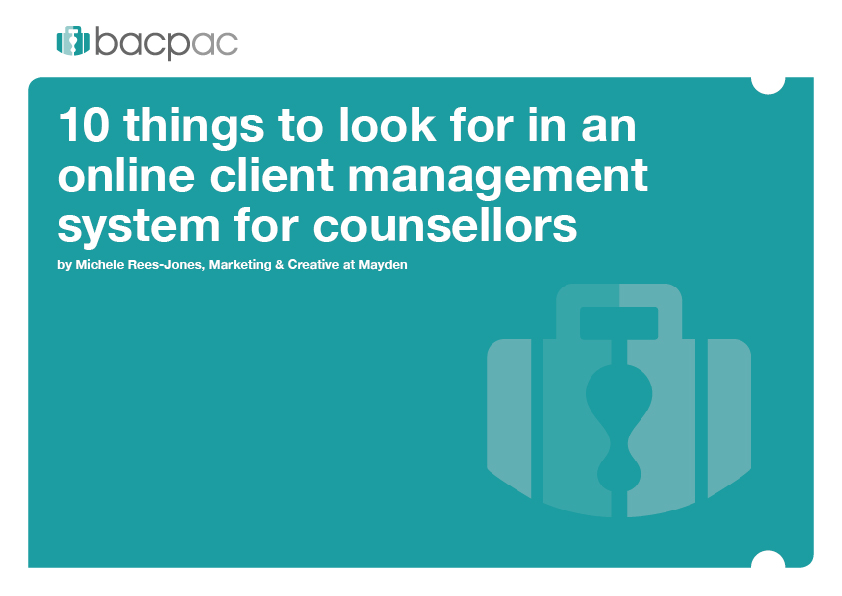User stories: Consolidating our service at West Kent Mind
In this video, West Kent Mind’s lead counsellor and IT manager, Brian Pugsley, shares how the practice uses bacpac in a multi-user environment.
Brian reveals that he no longer has concerns around the security of patient data and the business continuity across multiple locations. He says that using bacpac may even enable further locations to open up!
West Kent Mind run a variety of mental health services at multiple locations in West Kent. They have three main areas of activity, their community well-being team who
provide mental health services to the community. They have a community development team who, as well as fundraising, offer a wide range of training. And they have their psychological therapy service.
Brian had always wanted to use client management software and assumed that it was going to be unaffordable, but it became obvious they would need to make the leap and bacpac was a cost-effective option. There were a couple of problems that they were having, one of which was that they were delivering psychological therapy from two different locations and they didn’t want to see paper notes being transferred between locations also with the increasing number of therapists and the increasing number of client contacts, they needed some way of bringing it all together.
“We chose bacpac client management software and it’s made an enormous difference to our day-to-day operations. The problem of operating from multiple locations has been solved. We may even open up further locations now that we have all of the notes in one place. Our therapists love it. They just have to click a button and write their client notes and they can even write their client notes from home if they need to, and they can get on with the important work with their clients. it’s so much easier to assign a client to a therapist now because the assessment is in bacpac and they have access to everything that they need to get started with that client.
I’m really confident about the security of the data within bacpac. So much so that I don’t really concern myself with that. My concern is with the users and with making sure that people who are authorised to use the system do so in the safest way.” – Brian Pugsley, lead counsellor and IT manager.
We’re thrilled to hear that our software is helping such a crucial service and that the therapists love it too.
Thank you for coming to share your story Brian.


